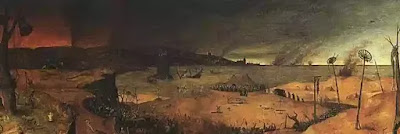Also Read
Eliot spoke of the method of James Joyce as a manipulation of continuous parallels between the present and the past, between contemporaneity and antiquity. He follows the same method in The Waste Land, by interfusing into the scenes of the modern world allusions and images drawn from ancient myths and earlier writers.
The Waste Land of the present is seen in terms of past waste lands the aridity of the Fisher King's lands, the withering of crops in the land of Oedipus as a result of his incestuous marriage, and the Biblical waste land born of a loss of religious belief spoken of by Ezekiel and in the Ecclesiastes. The modern waste land is a waste land born of lust and lack of religious faith, thus a combination of sexual and spiritual aridity.
Eliot's attitude toward the past is not blind adulation. He shows his consciousness of the grandeur as well as the ugliness of the past. Lust played a part in the past, too; Philomela's rape is evidence of that, But in the past, death was meaningful, and not a spiritual waste, for it implied a rebirth, fresh lease of life and a rich if mysterious transformation. The drowning of the Phoenician Sailor and the burial of the dead god of fertility were associated with fresh growth and rebirth. The death and violation of the modern world seem devoid of such transformation.
